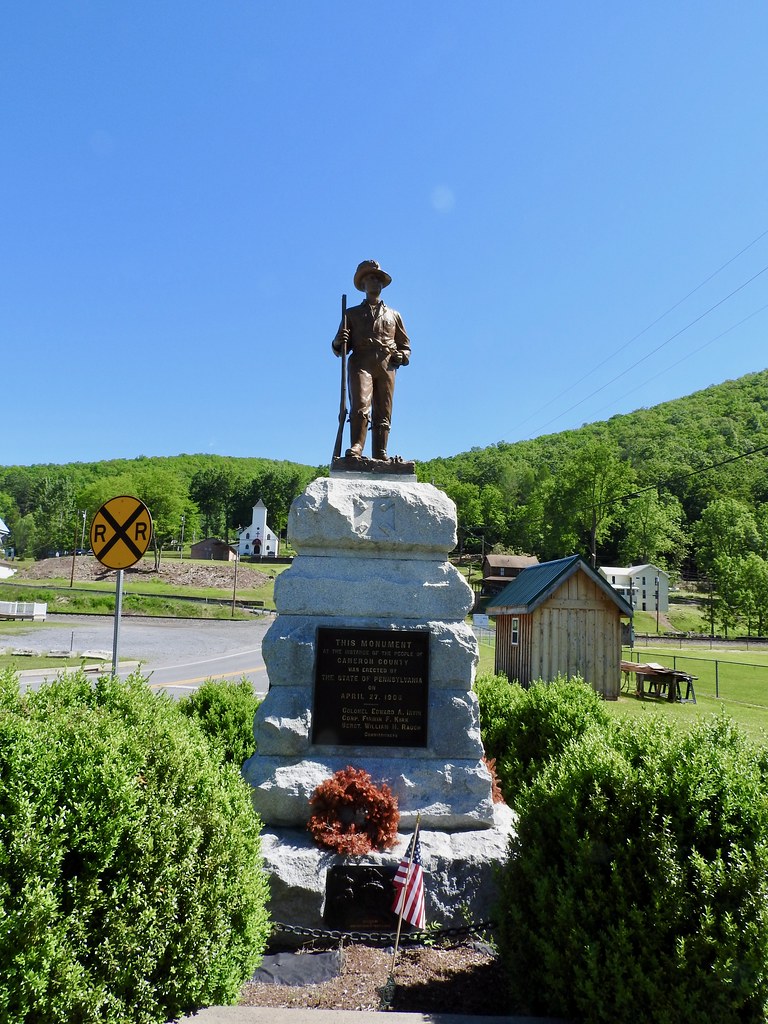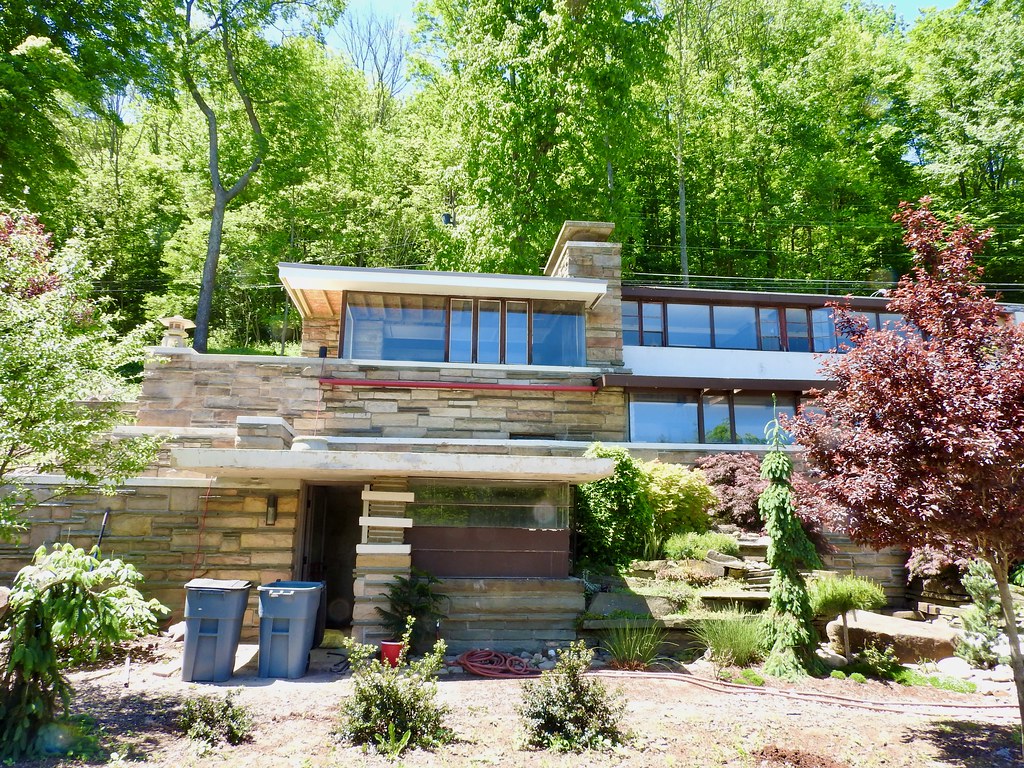The initial push to capture a dozen remaining unvisited counties in Pennsylvania took a decidedly northern turn. This loop led nearly to the New York border. It also reduced my punch list by half while taking only 4 ½ driving hours.
New counties encountered: Elk; Cameron; Potter; McKean; Warren; and Forest.
Roadside Aliens

My older son decided to join me on this particular adventure as he’s done frequently in the past. We set out to find some interesting sites as we crossed into new territory. However we hadn’t even left Clearfield County when we made our first stop. An article on the Roadside America website recommended “Green Mannequin Aliens and UFO.” Why not? It fell directly along our intended route and it seemed unique (map). I’m always a sucker for weird roadside attractions.
A resident near Penfield took some repurposed store manikins, painted them green and set them up with an obsolete satellite dish in his yard to mimic a flying saucer crash. This sure beat having to take the old dish to the dump. I wouldn’t recommend driving out of the way to visit this “attraction” although I certainly didn’t mind pulling over as we passed.
From there we traveled into Elk County. Ordinarily a visitor would stop at its most popular attraction, the Elk Country Visitor Center. However, we skipped it because a lot of it involved indoor space and a hay ride. Maybe we’ll try next time when we don’t have to worry about a coronavirus. We did drive through some of the elk viewing areas though. I saw a lot of deer but no elk.
Bucktail Monument

Anyone journeying through northeastern countryside naturally encounters a multitude of monuments to Union soldiers who fought in the Civil War. Towns large and small erected statues dedicated to their local resident heroes who answered the call and preserved the nation.
Tiny Driftwood, Pennsylvania had its “Bucktail” monument (map). The Bucktails, a part of the 42nd Pennsylvania Infantry, consisted of lumbermen from the surrounding area who served from 1861 to 1864. The non-standard uniform of the soldier standing on the pedestal reflected that heritage.
Why would I stop there given the prevalence of similar statues all over the place? Because it gave me a chance to see Cameron County. Nobody goes to Cameron without a reason. It’s not on the way to anything, an Interstate Highway doesn’t pass through it, there aren’t any attractions. Barely 5,000 people live here, the fewest of any Pennsylvania county, and it has only one town of any significance. I practically had to stop there!
Austin Dam Disaster

We traveled next to neighboring Potter County. The dam for a paper mill burst here, upstream from the town of Austin in 1911. Seventy eight residents died in the resulting flood. Officials never removed the old dam. Maybe they wanted it to serve as a reminder. Maybe they thought it would be too difficult to cart way. I don’t know. The disaster did lead to legislation that tightened requirements for dam construction.
Now a memorial park rests at the base of the ruins (map). Visitors can go right up to the structure and walk amongst the fractured concrete and twisted rebar. The park included shaded picnic tables under a stand of trees next to the creek that once filled the reservoir. We ate our lunch there, so serene it seemed difficult to imagine the disaster that happened on that spot a century earlier.
Lynn Hall

We pushed into McKean County, near the town of Port Allegany. Once again we came across an attraction on our direct route that deserved a stop, but probably unworthy of a detour otherwise. It was Lynn Hall, a former restaurant and dance hall built in the 1930’s in a Modernist Movement style (map). Does the photo of the structure remind anyone of Frank Lloyd Wright’s renowned Fallingwater? Maybe? A passing resemblance?
As the Lynn Hall website mentioned,
“It was designed and built by Walter J. Hall –– a self-taught practitioner of the style –– who is best known as the builder of Frank Lloyd Wright’s Falling Water. As the story goes, Wright visited Lynn Hall at the bequest of Edgar Kaufman after the original contractor walked off the project due to the complexity of Wright’s design. Upon discovering Hall’s building, Kaufman wrote in his letter to Wright, ‘We have our builder.’ Hall accepted the challenge for the whopping salary of $50 a week.”
Lynn Hall seemed to be undergoing restoration so we stopped only long enough to snap a couple of photographs. Like I said, a nice enough attraction on the way to something else.
Kinzua Viaduct

We pushed deeper into McKean County. Next we arrived at Kinzua Bridge State Park near Mount Jewett (map). Once an old railroad bridge crossed here. The New York, Lake Erie & Western Railroad first spanned the gorge in 1881. A stronger bridge replaced it in 1900 and trains continued to use it well into the 1950’s. Railroads fell out of vogue and the abandoned viaduct became an impressive centerpiece for a state park.
Pennsylvania had plans to feature this in a rails-to-trails project. However, an F-1 tornado swept down the valley and destroyed most of the bridge in 2003. Rebuilding would be too expensive so the remaining structure became a skywalk and viewing platform instead. Trails lead down to the twisted metal ruins in the valley below for those who want to visit. Unfortunately we didn’t have enough time. I’d love to go back though.
I couldn’t find anything interesting along the rest of our path. So we headed back to our home base, clipping Warren and Forest Counties along the way, bringing our total county count to six for the day. We called it a success.
Articles in the Finishing Pennsylvania Series
See Also: The Complete Photo Album on Flickr

Leave a Reply